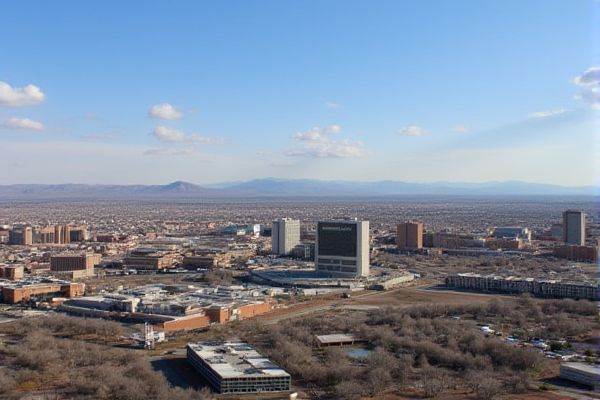
Emergency services and contact information in Utah: Dial 911 for emergencies statewide. Utah Highway Patrol: 801-887-3800. Poison Control Center: 800-222-1222. Utah Department of Public Safety's website. Locate nearest hospital or urgent care. Know local police department contact. Severe weather alerts via NWS. Register for community emergency notifications. Save local fire department number. Emergency preparedness resources by Utah DEM.
Dial 911 for emergencies statewide.
In Utah, dial 911 for any situation that requires immediate assistance from Emergency Medical Services, the Police Department, or the Fire Department. For non-emergency situations, contact the appropriate local authorities, and be prepared to provide clear location and emergency details when calling or texting 911.
Utah Highway Patrol: 801-887-3800.
The Utah Highway Patrol provides various emergency and non-emergency services, including crash reporting, citation sign-off, and trooper contact. For specific office locations and services, such as the Utah County office, you can visit their website. The general contact number is not listed; instead, you can use office-specific numbers like (801) 234-8285 for Utah County.
Poison Control Center: 800-222-1222.
The Utah Poison Control Center (UPCC) is a 24/7 resource providing essential services such as poison information, clinical toxicology consultation, and poison prevention education. Each year, the UPCC manages over 40,000 poison cases, showcasing a high utilization rate compared to the national average. This crucial service is funded through dedicated credits derived from an emergency services telecommunications charge. For those seeking further details about UPCC's operations and services, information is accessible through the official website. These resources remain accessible via their hotline at 1-800-222-1222, ensuring constant support for those in need.
Utah Department of Public Safety's website.
The Utah Department of Public Safety's website provides access to various emergency and public safety services, including concealed firearm permits, victim resources, accident reports, cold cases, and contact information for different divisions such as the Driver License Division and Emergency Management. It also offers resources for partner agencies and community support programs. For more detailed information, visit the Utah Department of Public Safety to explore these comprehensive services and maintain public safety standards in the community.
Locate nearest hospital or urgent care.
To locate the nearest hospital or urgent care in Utah, you can visit the Utah Valley Hospital website, which provides information on emergency care services, urgent care options, and medical services available at the hospital. Alternatively, the University of Utah Hospital emergency room website offers details on their 24/7 emergency services, including trauma, STEMI, and stroke care, as well as information on location and contact details.
Know local police department contact.
In Salt Lake City, the preferred course of action in case of an emergency is to call 911 immediately. For non-urgent police assistance, residents can utilize the number (801) 799-3000, while general inquiries can be directed to (801) 799-3100. The Salt Lake City Police Department supports citizens with options for online reporting and various means of contact tailored to specific needs. The Unified Police Department of Greater Salt Lake offers similar services, accessible through 911 for emergencies and (801) 840-4000 for non-emergency situations. For those residing in North Salt Lake, emergency services are available by dialing 911, and non-emergency matters can be addressed at (801) 298-6000 during specified hours at City Hall offices. In West Jordan, the community is advised to reach out to 911 for emergencies and (801) 840-4000 for non-urgent assistance, with additional inquiries being manageable through their police administration at (801) 256-2000 or via email.
Severe weather alerts via NWS.
In Utah, severe weather alerts from the National Weather Service can be received through the Emergency Alert System, NOAA Weather Radio, and Wireless Emergency Alerts on cell phones, which provide timely warnings for severe weather events such as tornadoes, floods, and severe thunderstorms. For more information and updates, please visit the National Weather Service website.
Register for community emergency notifications.
If you're a resident of Summit County, it's crucial to register for the Summit County Emergency Alert Program to ensure you receive critical notifications about emergencies, such as wildfires, road closures, and evacuations. These alerts can be delivered via phone, email, or text messages, ensuring you're always informed. In Davis County, signing up for Everbridge emergency alert notifications is essential to receive official disaster information, including alerts for missing persons, hazardous materials dangers, and evacuations. Although Utah County does not provide a direct registration link, its safety page offers non-emergency dispatch numbers and other key safety contacts; however, residents are encouraged to explore local municipality alert systems for emergency notifications.
Save local fire department number.
For emergency services in Park City, Utah, call 911. For non-emergency contacts, such as scheduling a fire inspection or requesting records, refer to the Park City Fire Department's contact list, which includes various department numbers for inspections and community education.
Emergency preparedness resources by Utah DEM.
The Utah Division of Emergency Management (DEM) provides extensive resources for emergency preparedness, including the Be Ready Utah program, flood management resources, the Great Utah ShakeOut, and specific guides for prevention, mitigation, response, and recovery. The website also offers contact information for various emergency services and programs, such as the DEM PIO, floodplain management, and earthquake programs.
